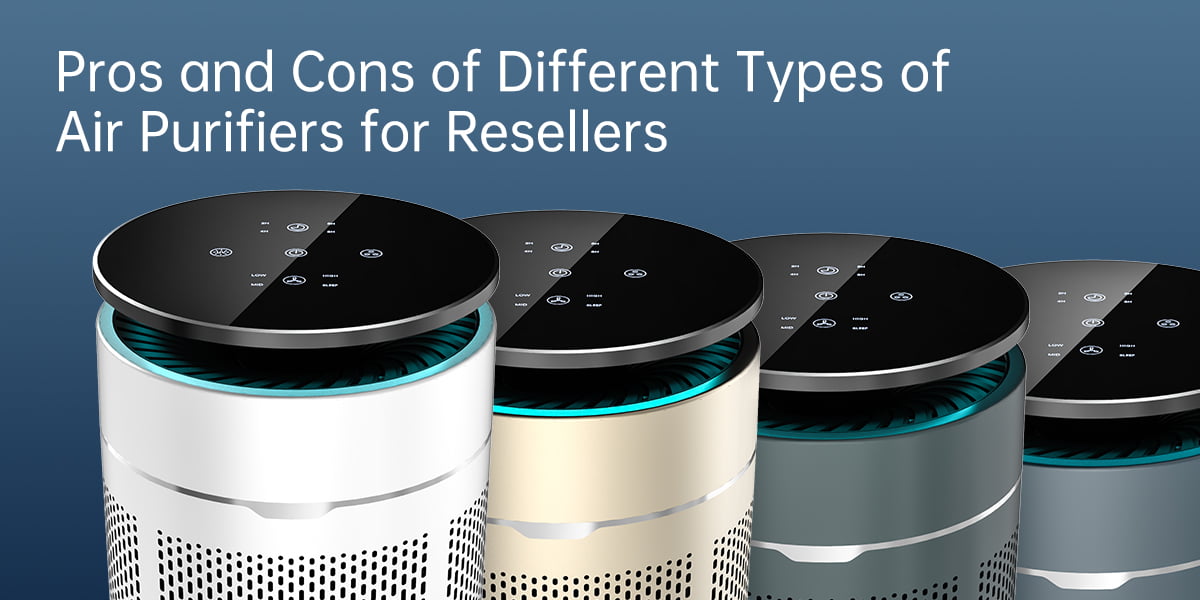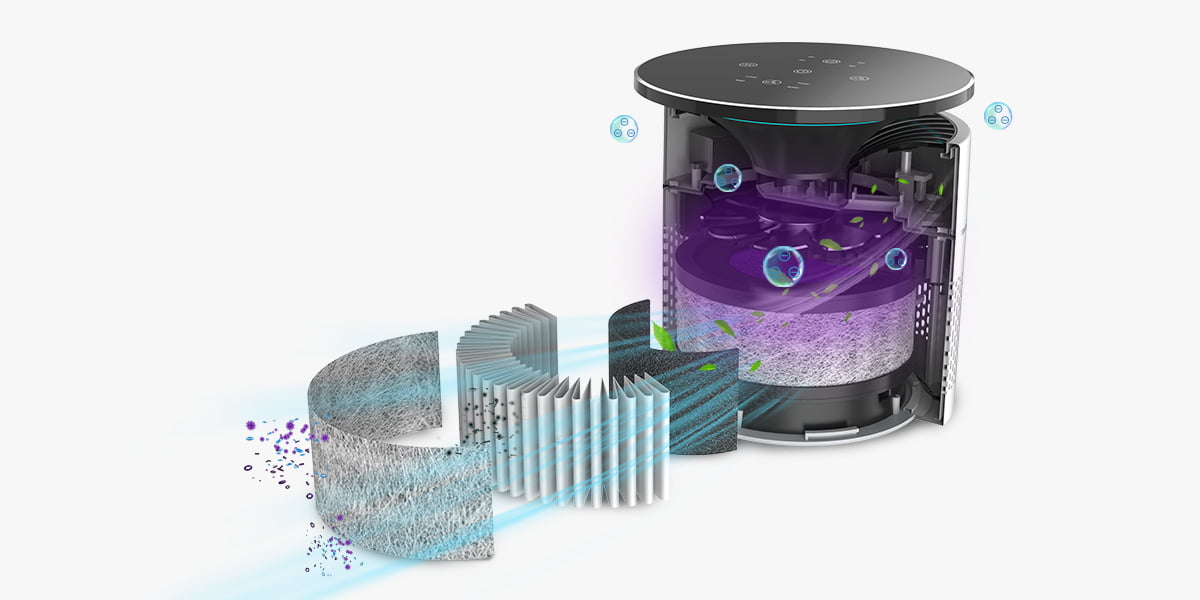Pros and Cons of Different Types of Air Purifiers for Resellers

In recent years, with the intensification of air pollution and the increasing awareness of healthy indoor air, air purifiers have become increasingly popular. As a reseller, understanding the pros and cons of different types of air purifiers is crucial for effectively meeting your customers’ needs. We will explore various types of air purifiers and weigh their advantages and disadvantages to help you make professional recommendation when offering these products to your customers.
Air Purifier with High-Efficiency Particulate Air (HEPA) Filters:
Pros:
1.Highly effective at removing airborne particles, including dust, pollen, pet dander, and other allergens. They can remove up to 99.97% of particles as small as 0.3 microns.
2.Safe to use and do not produce harmful by products. They are also non-toxic and do not emit harmful chemicals.
3.Minimal maintenance required (filter replacement typically needed every 6-12 months).
4.Suitable for allergy and asthma sufferers.
Cons:
1.More expensive than other types of filters, which can make air purifiers with HEPA filters more expensive.
2.Limited Functionality: HEPA filters are only effective at removing airborne particles, and are not effective at removing odors.
3.Some air purifiers with HEPA filters can be noisy, which can be a concern for some people.
Air Purifier with Activated Carbon Filters:
Pros:
1.Effective at Removing Odors: Activated carbon filters are highly effective at removing odors and chemicals from the air, including cigarette smoke, cooking odors, and volatile organic compounds (VOCs).
2.Safe: Activated carbon filters are safe to use and do not produce harmful byproducts. They are also non-toxic and do not emit harmful chemicals.
3.Long-Lasting: Activated carbon filters can last up to 6 months with proper maintenance.
Cons:
1.Limited Functionality: Activated carbon filters are only effective at removing odors and chemicals, and are not effective at removing airborne particles.
2.Maintenance: Activated carbon filters require regular maintenance, including cleaning and replacement, to maintain their effectiveness.
3.Limited Lifespan: Activated carbon filters have a limited lifespan and need to be replaced more frequently than other types of filters.

Air Purifier with UVC
Pros:
1.Effective at killing bacteria, viruses, and other microorganisms
2.Safe to use and do not produce harmful substances
3.Long-lasting with proper maintenance
Cons:
1.Limited functionality and not effective at removing airborne particles or odors
2.May produce ozone, which can be harmful to human health
3.Require regular maintenance to maintain effectiveness
Air Purifier with Ionizer
Pros:
1.Effective at removing airborne particles, including allergens and pollutants
2.Safe to use and do not produce harmful byproducts
3.Long-lasting with proper maintenance
Cons:
1.May produce ozone, which can be harmful to human health
2.Limited functionality and not effective at removing odors or chemicals
3.Require regular maintenance to maintain effectiveness
Air Purifier with Photocatalytic Filters:
Pros:
1.Photocatalytic air purifiers are effective at removing a wide range of pollutants, including volatile organic compounds (VOCs), bacteria, viruses, and odors.
2.Unlike some other types of air purifiers, photocatalytic air purifiers require little maintenance. The photocatalytic filter typically lasts for several months before needing to be replaced.
3.Photocatalytic air purifiers are typically energy-efficient, using minimal electricity to operate.
Cons:
1.While photocatalytic air purifiers are effective at removing many pollutants, they may not be as effective at removing larger particles, such as dust and pollen.
2.Some photocatalytic air purifiers produce small amounts of ozone, which can be harmful to human health, particularly for those with respiratory issues.
3.Photocatalytic air purifiers can be more expensive than other types of air purifiers, which may make them less accessible for some consumers.
Overall, each type of air purifier has its own strengths and weaknesses, and it’s important to consider the specific needs of your customers when choosing which type of air purifier to offer. HEPA and activated carbon air purifiers are effective at removing different types of pollutants, while UVC and ionizer air purifiers have different strengths as well.



